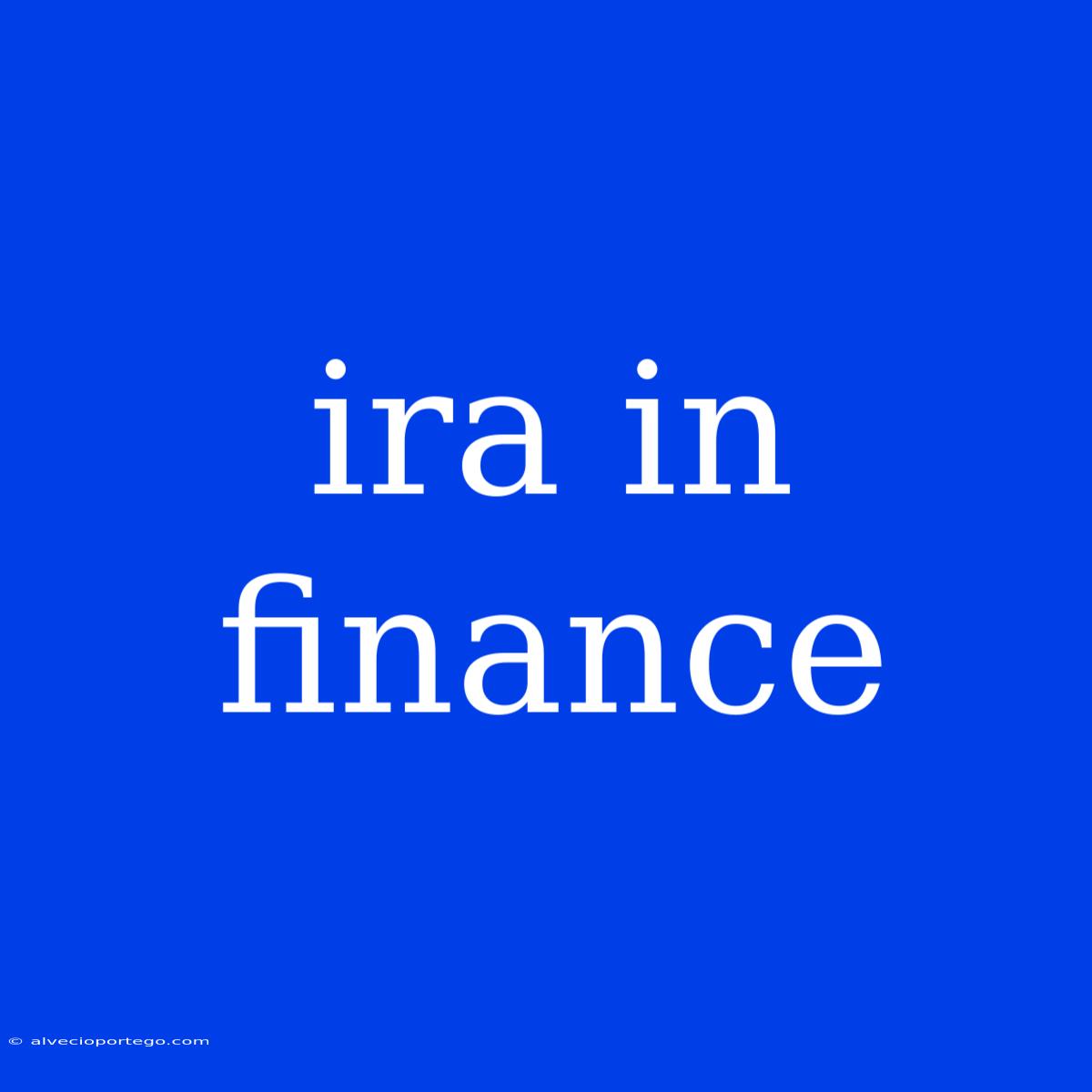IRA: Your Guide to Retirement Savings
An Individual Retirement Account (IRA) is a retirement savings plan that allows individuals to set aside money for their future. It offers tax advantages that can help you accumulate wealth over time.
Types of IRAs
There are two main types of IRAs:
1. Traditional IRA:
- Contributions are tax-deductible, meaning you can deduct them from your taxable income in the year you make them.
- You will pay taxes on your withdrawals in retirement.
- This is a great option for people who expect to be in a lower tax bracket in retirement than they are now.
2. Roth IRA:
- Contributions are not tax-deductible, but they grow tax-free.
- You will not pay taxes on withdrawals in retirement.
- This is a good choice for people who expect to be in a higher tax bracket in retirement than they are now.
Contribution Limits
For 2023, the maximum contribution limit for both Traditional and Roth IRAs is $6,500 for individuals under age 50. If you are 50 or older, you can contribute an additional $1,000 (for a total of $7,500).
Choosing the Right IRA for You
The best type of IRA for you depends on your individual circumstances. Consider the following:
- Your current tax bracket: If you expect to be in a lower tax bracket in retirement, a Traditional IRA may be the better option.
- Your future tax bracket: If you expect to be in a higher tax bracket in retirement, a Roth IRA may be the better option.
- Your income: There are income limits for Roth IRA contributions. If your income exceeds these limits, you may not be eligible to contribute to a Roth IRA.
Benefits of IRAs
- Tax advantages: IRAs offer significant tax advantages that can help you save more for retirement.
- Flexibility: You can choose to invest your IRA contributions in a wide variety of assets, such as stocks, bonds, mutual funds, and ETFs.
- Control: You have control over your IRA and can choose how to invest your money.
- Portability: You can take your IRA with you if you change jobs or move.
Getting Started with an IRA
To open an IRA, you will need to contact a financial institution, such as a bank, brokerage firm, or mutual fund company. They will help you set up your account and make contributions.
It's never too early to start saving for retirement!
Disclaimer: This article is intended for informational purposes only and should not be considered as financial advice. It is recommended to consult with a qualified financial advisor before making any investment decisions.

